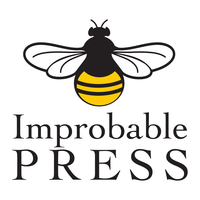By Ali Coyle

I love to meet nonbinary characters in fiction. I love nonbinary protagonists, nonbinary antagonists, and nonbinary side characters hanging around in the background, waiting for their fleeting chance to exist and prod the plot along while the main characters catch a break.
What I love even more is nonbinary characters who are sensitively written. But what does that mean to me? Below are my three favourite things about well-written, fictional, nonbinary characters.
Disclaimer: this is my personal view as a nonbinary human and you are free to agree or disagree to whatever extent is comfortable for you.
- I appreciate it when the character’s gender is not important to the story. They are simply there and acknowledged. Nobody makes a big deal about pointing them out as different or special. Think, “This is my friend Ali, they’re a writer,” with no elaboration. It’s great when other characters respect the use of gender neutral pronouns or neopronouns without fuss. If the writer wants to make the point that another character is an asshole, there are plenty of ways to show this without invoking gender-based prejudice. There’s enough of that in real life. In short, it is a delight to read nonbinary characters who are treated with respect.
More
"I nearly talked myself out of it…"
Writing Characters with Physical Disabilities
Craving Dark Cheer (Everyone Loves a Cryptid)
- I love it when the nonbinary character’s anatomy is not important to the story and not described in detail, even in a sex scene. I don’t need to be told what their genitals look like because I have a vivid imagination of my own. I’m a fan of a well-placed fade-to-black! Linked to this is the sincere appreciation I have for writers who skilfully navigate nonbinary identities without any underlying assumption about whether they were assigned male or female at birth, unless the character’s transition to a nonbinary identity is part of their character development.
Which leads to…
- It’s great when a character is struggling with body dysphoria as part of their character development and this leads to significant progress in learning to love themselves. I like reading about characters who learn to deal with their body dysphoria and reach some resolution. This might involve changes to their self-image, changes to their clothing or changes to their appearance, but eventual acceptance of themselves is important to me.
tl;dr I have a particular love for writers who treat their nonbinary characters with the love and respect I would like to experience as a real human.
Ali Coyle is an educator by day, a writer by night, and has been an unapologetic daydreamer since birth. At university, Ali interpreted the 'scientists can’t write' stereotype as a personal challenge and has been writing down their daydreams ever since. Ali also writes as “Rudbeckia” on AO3. They are fond of folk tales and have a story about a reluctant kelpie in Dark Cheer: Cryptids Emerging Volume Blue.
